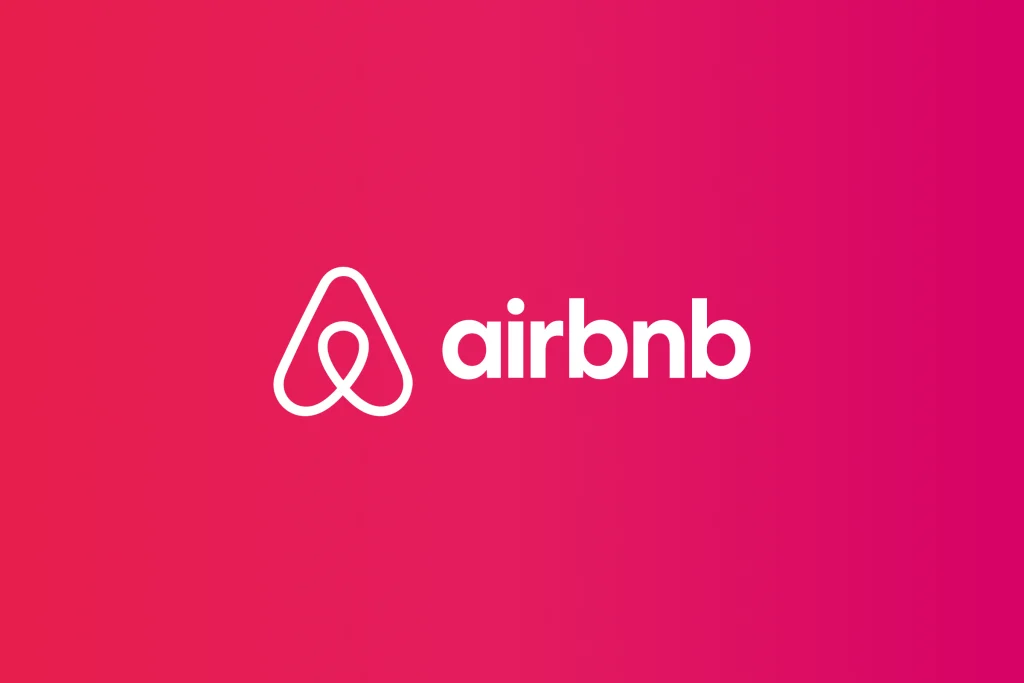
What is Airbnb?
Airbnb is an online marketplace connecting people who want to rent out their property with people looking for accommodations, typically for short stays. Airbnb offers hosts a relatively easy way to earn some income from their property.
About Airbnb
Airbnb, Inc. is an American San Francisco-based company operating an online marketplace for short- and long-term homestays and experiences. The company acts as a broker and charges a commission from each booking. The company was founded in 2008 by Brian Chesky, Nathan Blecharczyk, and Joe Gebbia.
Founders: Brian Chesky, Joe Gebbia, Nathan Blecharczyk
CEO: Brian Chesky (2008–)
Subsidiaries: HotelTonight, Luxury Retreats International Inc., MORE
Founded: August 2008, San Francisco, California, United States
Headquarters: San Francisco, California, United States
Number of employees: 6,811 (December 2022)
Supported Cleaning Platform: Cleanster.com
How Airbnb Works—for Hosts, Guests, and the Company Itself
Airbnb for Guests
On Airbnb’s website, guests can click on any listing to view all kinds of details about the property, including a description (including amenities), photos, check-in and check-out times, price and fees, house rules, availability, host info, and more. They can also read reviews from previous guests.
To use Airbnb, you generally need to take the following steps:
- Visit the Airbnb website.
- Create an account if you still need to do so. Signing up can take a bit of time. Among other things, you’ll need to verify your phone number and upload some form of identification.
- Specify the location and date(s) you’re after, and then begin reviewing listings for an available place. Use the site’s various filters to customize your search.
- When you’ve found the accommodation you want, make a booking to reserve it.
- Pay for the accommodation and receive notification of your booking, including the address where you’ll be staying. For longer-term stays, it’s possible to arrange a payment plan through which you’ll pay an initial deposit and the rest in installments.
Reading reviews is a key part of finding the right place to stay. However, they can’t always be 100% relied on. Reviews sometimes tend to be overly generous, perhaps because guests are worried a bad review will lead the host to fire one back.
Airbnb for Hosts
Airbnb hosts can be an individual or a company. As an Airbnb host, you can rent out extra space in your home, such as a spare bedroom. Or you can offer your entire home for rent. You can even host special experiences like classes, tours, and concerts in your area (although Airbnb recently paused adding new activities to the list).
Hosts have control over certain aspects of their rental, such as amenities and special features. For example, you might offer to pick up and drop off guests at the airport. Hosts set prices, security deposits, refunds, check-in/check-out times, and other particulars.
To rent out your property, you generally need to take the following steps:
- Start by researching whether the area where your property is located imposes fees or restrictions on rentals. Many cities have their own rules on how many days you can rent out your home, whether you must be in residence when guests stay there, and so forth.
- Become familiar with Airbnb’s requirements for hosts.
- Create a free Airbnb account. Then, click on Airbnb Your Home in the upper right corner of the page.
- Next, click Airbnb Setup. Create an attractive, attention-grabbing listing for your property. Appealing photos that give potential guests a complete picture of the space can help.
- If you need ideas or help creating your listing, you can contact a “Superhost Ambassador” in your area.
- Set your pricing. Airbnb provides a tool in its Help Center to assist with this. Once everything’s complete, publish your listing.
- You’ll be able to add or update certain items, such as your general settings and house rules after you publish your listing. Check with Airbnb’s Help Center for more details.
What Is Airbnb Pricing?
The total amount that guests pay for a room or other space on Airbnb includes the host’s price plus Airbnb’s guest service fee (a maximum of 14.2%). Hosts pay Airbnb a fee of approximately 3%.
Airbnb Safety and Security
Airbnb has rules designed to protect both guests and hosts. For example, threats, violence, and abuse toward others (sexual and otherwise) are not tolerated. Neither are dangerous animals, undisclosed weapons, or explosive devices. Legally owned, permitted weapons of various types are allowed but they must be secured and disclosed to hosts prior to arrival.
Hosts can refuse or cancel reservations if a guest makes them feel uncomfortable or unsafe. In addition, Airbnb offers AirCover for Hosts, a program that provides “top to bottom protection,” including guest identity verification, reservation screening, liability insurance, damage insurance, and 24-hour safety phone access.
History of Airbnb
In 2008, Brian Chesky (the current CEO), Nathan Blecharczyk, and Joe Gebbia established the company now known as Airbnb. The idea blossomed after two of the founders started renting air mattresses in their San Francisco home to conference visitors. Hence, the original name of Airbed & Breakfast.
In 2009, the name Airbnb was introduced, and its offerings grew beyond air mattresses to include spare rooms, apartments, entire houses, and more. The locations in which it operated grew, as well. By 2011, Airbnb had opened an office in Germany and in 2013, it established a European headquarters in Dublin, Ireland. Its primary corporate location is still in San Francisco.
In addition to the U.S. and Europe, the company has established a presence in Australia, Asia, Cuba, as well as other nations (more than 220 countries and regions in total). It has also expanded its travel offerings to include local activities programs called Experiences.
In 2020, Airbnb launched its Frontline Stays program to lodge first responders during the COVID-19 pandemic. Also in 2020, the company went public. Its common stock trades on the Nasdaq exchange under the symbol ABNB.
Does Airbnb Integrate with Cleanster?
Yes, Airbnb connects with Cleanster. You can also see how to connect your Airbnb account here
How Does Airbnb Make Money?
Airbnb’s business model is quite profitable. Companies like Uber, Lyft, and others have capitalized on the so-called sharing economy, essentially making money renting out property that it doesn’t own.
Every time someone books a stay, Airbnb takes a cut. When customers click on a property, they’ll see a breakdown of the fees they’ll be charged if they proceed. As mentioned, guest fees typically max out at 14.2%, while hosts generally pay about 3% of the amount they take in.
Airbnb also has an alternative payment structure that customers might see from time to time. It’s mandatory for “traditional hospitality listings,” such as hotels located in certain regions of the world, to cover the service fee in full rather than split it with guests. When this is the case, the fee is usually 14% to 16% of the booking subtotal but can go higher.
Competitors
Airbnb’s competition includes Agoda, Booking.com, Expedia, Hopper, Tripadvisor, Trivago, and Vrbo. Some, such as Vrbo, offer services that are similar to Airbnb’s. Others are essentially online travel agencies that help travellers find hotels and other private accommodations in the area they are visiting.
Advantages and Disadvantages of Airbnb
For hosts, participating in Airbnb is a way to earn some income from their property, but with the risk that the guest might damage it. For guests, the advantage can be relatively inexpensive accommodations, but with the risk that the property won’t be as appealing as the listing made it seem.
Here’s a more in-depth look at some of the pros and cons for both hosts and guests:
Pros
- Wide Selection: Airbnb hosts list many different kinds of properties, from single rooms, apartments, and houses to houseboats and even castles.
- Free Listings: Hosts don’t have to pay to list their properties. Listings can include written descriptions, photos with captions, and a user profile in which potential guests can get to know a bit about the hosts.
- Hosts Can Set Their Own Prices: It’s up to each host to decide how much to charge per night, per week, or per month.
- Customizable Searches: Guests can search the Airbnb database—not only by date and location, but by price, type of property, amenities, and the language of the host—and add keywords (such as “close to the Louvre”) to help narrow their search.
- Additional Services: Airbnb offerings also include experiences and restaurants. People searching by location will see a list of experiences, such as classes and sightseeing, offered by local Airbnb hosts. Restaurant listings also include reviews from Airbnb hosts.
- Protections for Guests and Hosts: Airbnb holds each guest’s payment for 24 hours after check-in before releasing the funds to the host. For hosts, Airbnb provides up to $3 million in coverage for unreasonable damage inflicted on the property. This protection comes at no extra cost but doesn’t cover everything.
Cons
- What You See May Not Be What You Get: Individual hosts create their own listings, and some may be more honest than others. One way to avoid disappointment is to read comments from previous guests.
- Potential Damage: Although most stays go without incident, property damage is probably the biggest risk for hosts. Airbnb’s Host Damage Protection (part of AirCover for Hosts) provides some assurance. But it may not cover everything, such as cash, rare artwork, jewelry, and pets. Hosts whose homes are damaged may also experience considerable inconvenience.
- Added Fees: Like hotels, Airbnb imposes a number of additional fees. For each booking, both guests and hosts pay a service fee to Airbnb, which can be steep. Banks or credit card issuers may also add fees, if applicable.
- Taxes: Hosts and guests in some countries may be subject to a value-added tax (VAT). And depending on their location, hosts may also be subject to rental income taxes. To assist with U.S. tax compliance, Airbnb collects taxpayer information from hosts so they can provide an account of their earnings each year via Form 1099 and Form 1042.
- It Isn’t Legal Everywhere: Before listing a property on Airbnb, a would-be host needs to check local zoning ordinances to make sure it’s legal to rent out their property and under what conditions. Hosts may also be required to obtain special permits or licenses.
For more information about Airbnb please visit Airbnb’s Official Website



